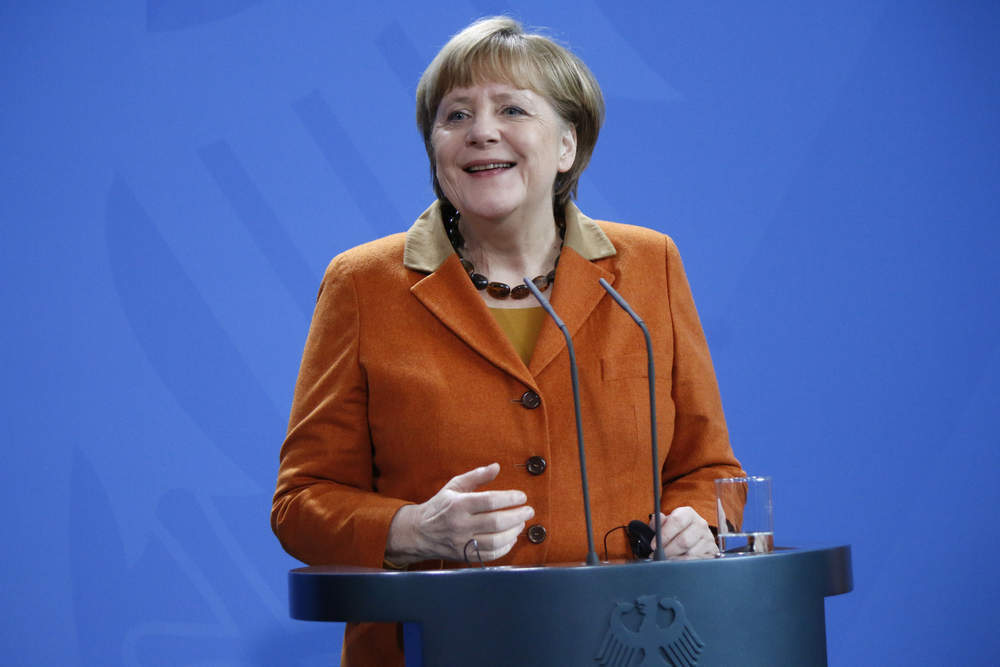
German chancellor Angela Merkel, Europe’s longest-serving leader, is set to secure her fourth term on 24 September.
To what extent is the 63-year-old’s continued popularity reliant on the country’s strong economy?
In her 12 years as chancellor, Merkel hasn’t had to worry a great deal about Germany’s economic stability or its ability to attract foreign investment.
Germany is one of the world’s wealthiest nations, home to four of the world’s largest companies by revenue, according to Forbes.
The country also boasts the highest average incomes in the European Union (EU).
Julian Rappold, project leader at the European Policy Centre tells Verdict that the German economy has consistently demonstrated its resilience.
How well do you really know your competitors?
Access the most comprehensive Company Profiles on the market, powered by GlobalData. Save hours of research. Gain competitive edge.

Thank you!
Your download email will arrive shortly
Not ready to buy yet? Download a free sample
We are confident about the unique quality of our Company Profiles. However, we want you to make the most beneficial decision for your business, so we offer a free sample that you can download by submitting the below form
By GlobalDataThere is not much to complain about economically in Germany. The country fared relatively well through the financial crisis, while other EU member states were in really bad shape.
Figures for the second quarter of the year showed the German economy was growing at its fastest annual rate in three years, while domestic household spending hit its strongest level since 2011.
Markets are confident in the German economy and expect Merkel to be re-elected, the investment bank Coutts said in a note on Thursday.
The German economy is doing very well. Its gross domestic product is growing and the country is expected to achieve a budget surplus this year following record tax revenues. Merkel’s re-election to a fourth term as chancellor would bring continuity — and that’s exactly what the markets have priced in.
Inheriting a strong jobs market
Germany’s prosperity is partly due to the country’s early embrace of neoliberal economic programs introduced by Gerhard Schröder, Merkel’s Social Democratic predecessor.
Merkel has reaped the benefits of Schröder’s labor market overhaul.
With unemployment at a low of 4 percent, she is presiding over the lowest jobless rate since the reunification of East and West Germany 27 years ago.
Wolfgang Bauer, a fund manager at M&G Investments tells Verdict that Schröder’s role in boosting the German economy cannot be understated.
It is debatable, of course, how much Merkel’s policy decisions have contributed to the economic recovery, and how much can be attributed to the extensive labour market reforms of her predecessor, Gerhard Schröder, and to global demand for German export products. The strong economic backdrop has certainly been a tailwind for Merkel.
Investor support abroad
As a champion of free trade, Merkel is popular among business leaders who are keen to retain tariff-free market access for their goods and services.
Benjardin Gartner, head of equity fund management at Union Investment, the Frankfurt-based asset manager told the Financial Times:
Merkel has many supporters among international investors in Asia, the US and the UK, and is perceived to be a pillar of stability in Germany and the eurozone.
American business magnate Warren Buffett, one of the richest men in the world, publicly declared his support for Merkel earlier this week. Buffett told the German business daily Handelsblatt:
Merkel is an extraordinary personality. Germany and the world, from my point of view, need a leadership personality like Angela.
The German chancellor, widely praised for her calm approach to governing, appeals to big business because of her policy choices but she also commands respect from company executives on a personal level.
Matt Qvortrup, who wrote a biography on the German leader entitled Angela Merkel: Europe’s Most Influential Leader, tells Verdict:
Merkel plays on the non-charisma factor. She’s able to boss business leaders around.
In response to Russia’s invasion of Crimea, Merkel managed to persuade German executives to accept tough sanctions on the Kremlin. Qvortrup says:
She convinced them to take a hit for the common good. Merkel is a very formidable politician and a skilled negotiator.
Germany’s pharmaceutical industry alone lost an estimated €2.1bn as a result of Merkel’s crackdown on Russia.
Germany’s Dax 30 has gained nine percent this year, compared with a seven percent rise for France’s CAC 40 and a three percent rise for the UK’s FTSE 100.





